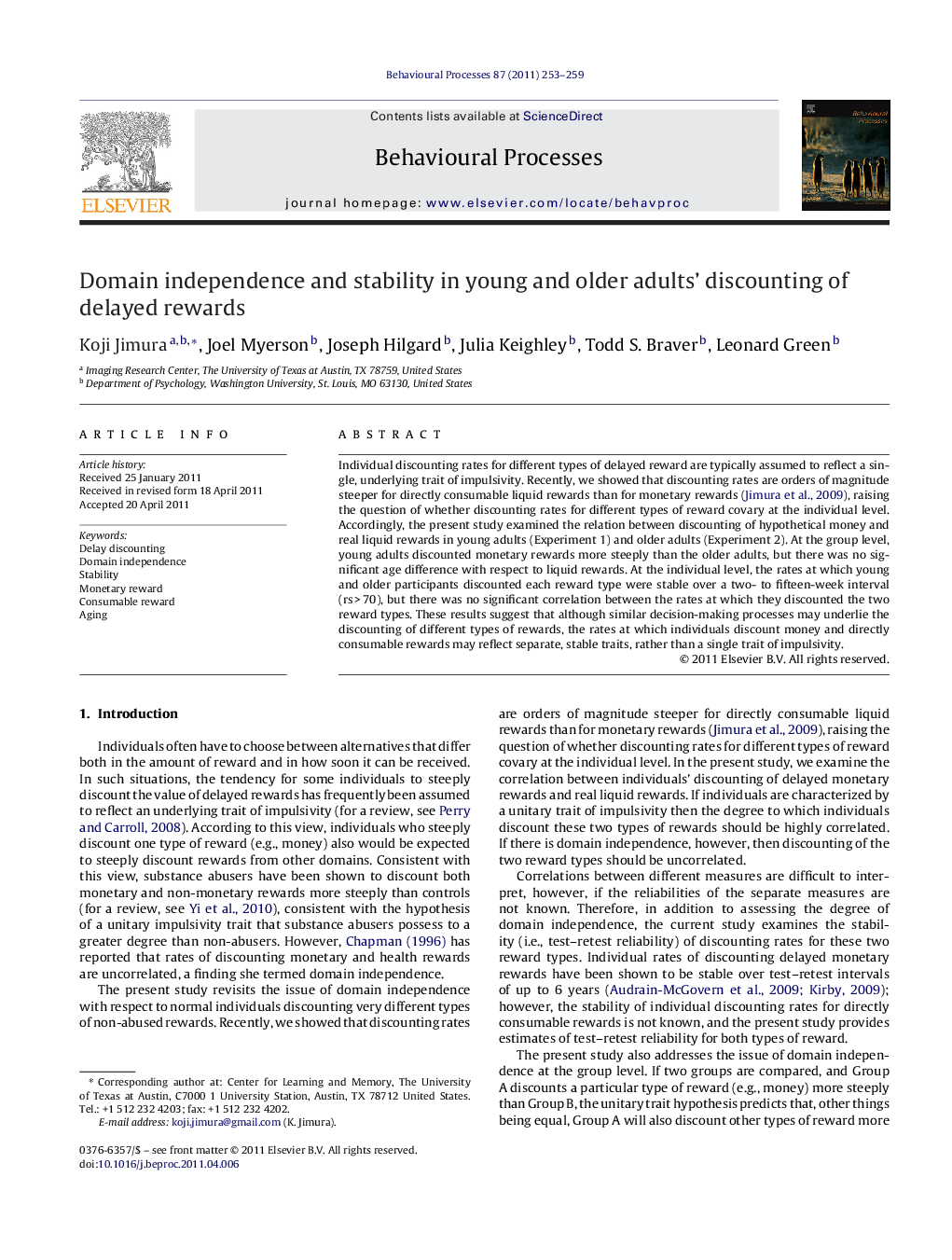| کد مقاله | کد نشریه | سال انتشار | مقاله انگلیسی | نسخه تمام متن |
|---|---|---|---|---|
| 2427203 | 1105949 | 2011 | 7 صفحه PDF | دانلود رایگان |

Individual discounting rates for different types of delayed reward are typically assumed to reflect a single, underlying trait of impulsivity. Recently, we showed that discounting rates are orders of magnitude steeper for directly consumable liquid rewards than for monetary rewards (Jimura et al., 2009), raising the question of whether discounting rates for different types of reward covary at the individual level. Accordingly, the present study examined the relation between discounting of hypothetical money and real liquid rewards in young adults (Experiment 1) and older adults (Experiment 2). At the group level, young adults discounted monetary rewards more steeply than the older adults, but there was no significant age difference with respect to liquid rewards. At the individual level, the rates at which young and older participants discounted each reward type were stable over a two- to fifteen-week interval (rs > 70), but there was no significant correlation between the rates at which they discounted the two reward types. These results suggest that although similar decision-making processes may underlie the discounting of different types of rewards, the rates at which individuals discount money and directly consumable rewards may reflect separate, stable traits, rather than a single trait of impulsivity.
► Individuals’ delay discounting of both real liquid rewards and hypothetical monetary rewards was stable for more than several weeks.
► Individuals’ discounting of liquid rewards was uncorrelated with their discounting of monetary rewards.
► Discounting of money and directly consumable rewards may reflect separate, stable traits, rather than a single trait of impulsivity.
Journal: Behavioural Processes - Volume 87, Issue 3, July 2011, Pages 253–259